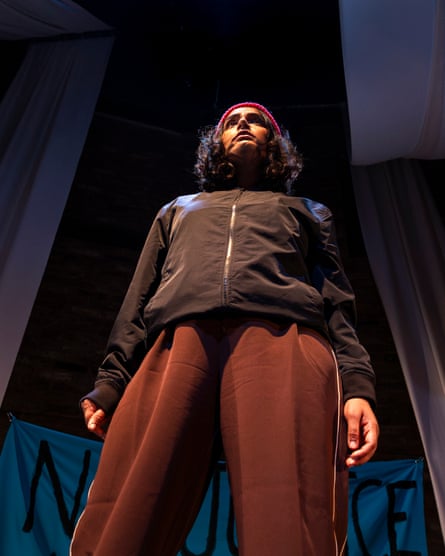What does liberation mean? That’s the dilemma at the heart of Hunia Chawla’s play Permission. Set across continents, on rooftops in Karachi and in university halls in London, it follows Hanna (generously performed by Anisa Butt), a young Pakistani woman with a rebellious spirit, who moves across the world in search of independence.

Chawla’s writing is knotty and crackles with conflict. Hanna feels stifled by the patriarchal structures of her home town, which prevent her from walking the streets alone or dating without fear of being stopped by the police. But life in London brings with it its own confinements. Here, she meets Anushe (a straight-talking Rea Malhotra Mukhtyar), a third-year student who encourages her to join protests against the university’s acceptance of funding from arms dealers – overlooking that speaking out carries far greater risks for someone like Hanna, who is living in the UK on a visa.
Ultimately, neither Karachi nor London gives Hanna the full life of autonomy she craves. The comparisons between the cities feel nuanced and layered, showing how systems of control operate in different contexts. Behind the politics, though, is a platonic love story. While Hanna leaves for London, her best, friend Minza (also played by Mukhtyar) chooses to stay and study in Karachi, joining the Aurat Marches on the city’s streets.
Despite their distance and growing differences, their friendship lives on through phone calls. The pair’s conversation bounces from teenage anxieties to bigger discussions about women’s rights. Directed by Neetu Singh, it is in these scenes of dialogue where the play lands on its quietest, most intimate flashes. But their affection is not quite enough to wipe away the play’s creative inconsistencies.
It starts with Butt, as Hanna, performing one side of a conversation; immediately, Permission centres itself as a story about women’s experiences. Later, though, the voices of other male characters begin to play through speakers. What emerges is a play that feels torn between competing impulses.
There are other gripes, too. Audience interaction is thrown in a little too late to feel authentic, while a scene where Hanna is found smoking weed by her father appears to have no consequences. It’s frustrating, as Permission has the beginnings of something truly unique, but too many decisions lack clear reasoning, leaving the play’s bold ideas only partially realised.

.png) 3 months ago
40
3 months ago
40

















































